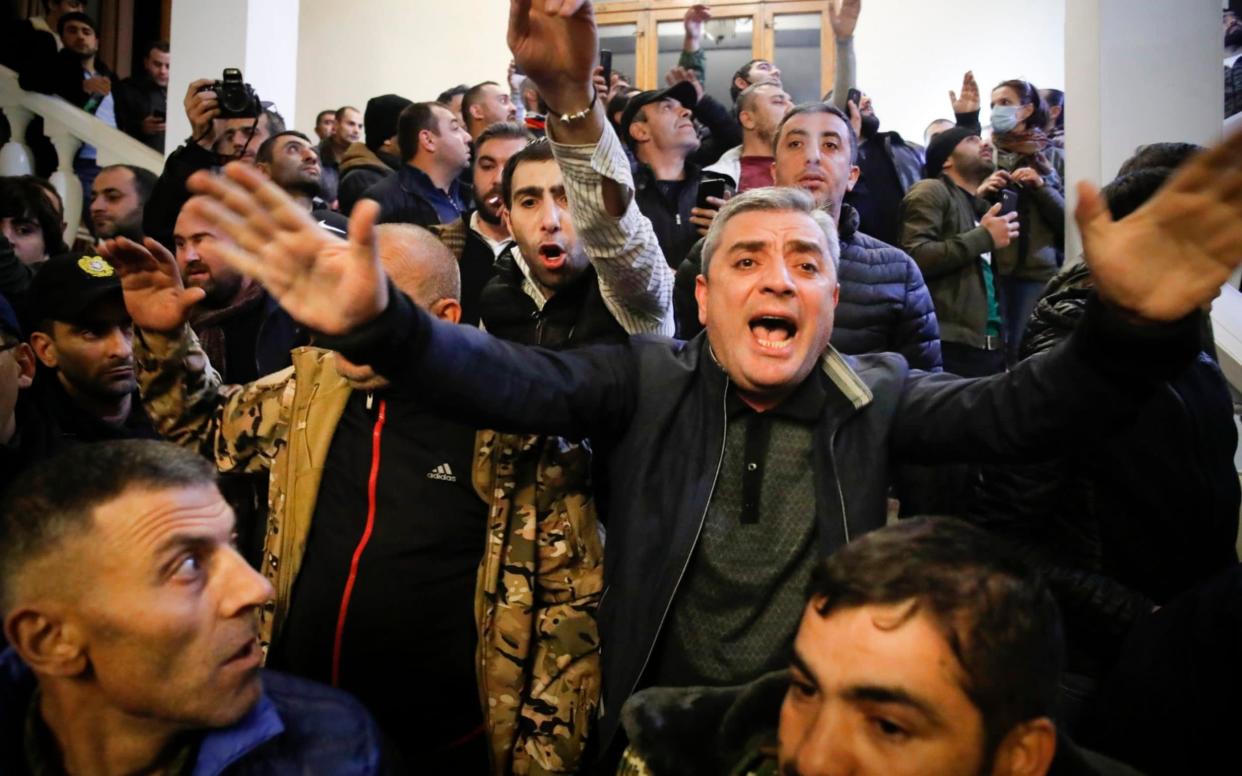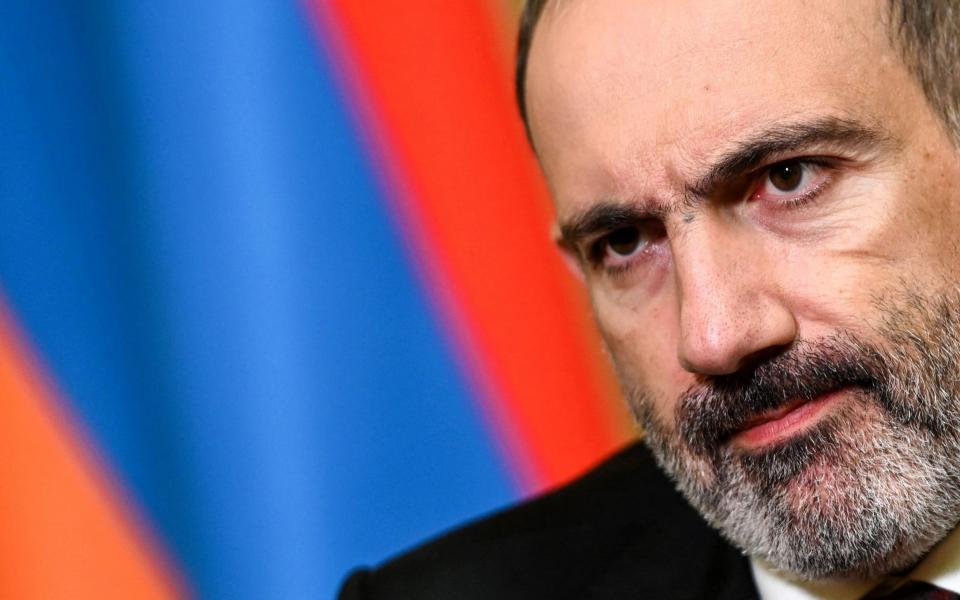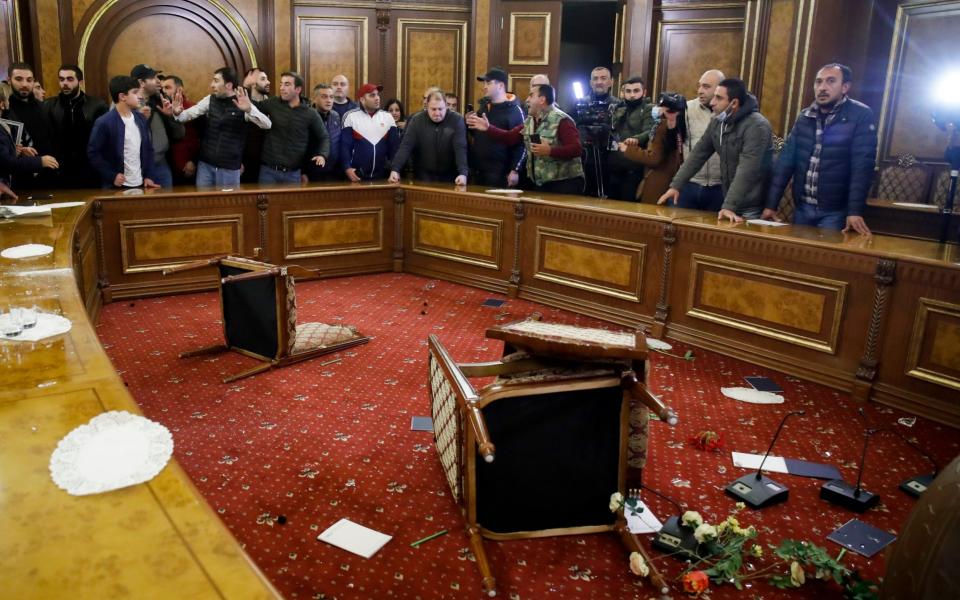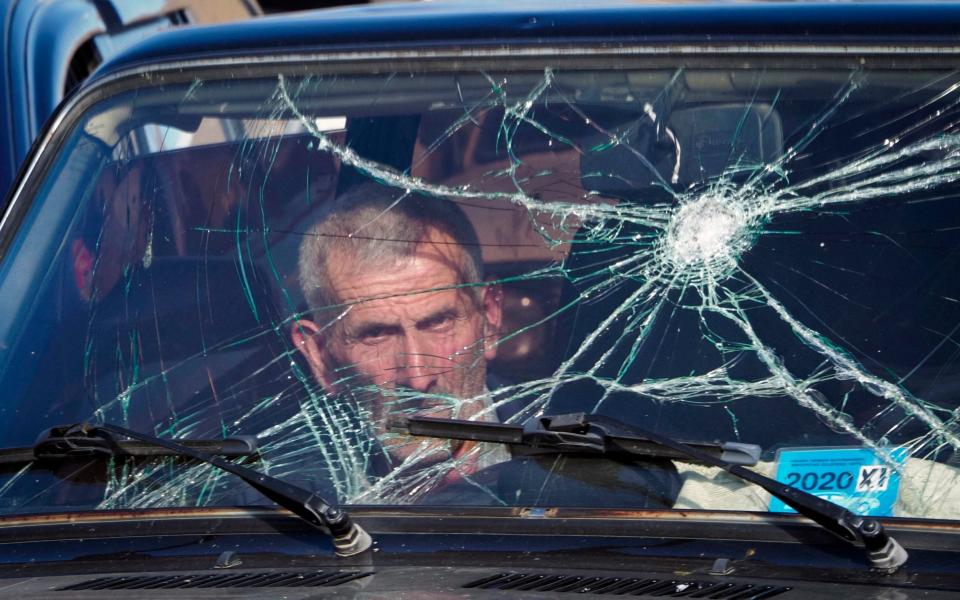Armenia and Azerbaijan agree ceasefire deal as Russia deploys peacekeepers

Armenia and Azerbaijan announced an agreement early on Tuesday to halt fighting over the Nagorno-Karabakh region of Azerbaijan under a pact signed with Russia that calls for deployment of nearly 2,000 Russian peacekeepers and territorial concessions.
Nagorno-Karabakh has been under the control of ethnic Armenian forces backed by Armenia since a 1994 truce ended a separatist war in which an estimated 30,000 people died. Since then, sporadic clashes erupted, and full-scale fighting began on September 27.
Several ceasefires had been called but were almost immediately violated. However, the agreement announced early on Tuesday appeared more likely to take hold because Azerbaijan has made significant advances, including taking control of the strategically key city of Shushi on Sunday.
Armenian Prime Minister Nikol Pashinyan said on Facebook that calling an end to the fight was "extremely painful for me personally and for our people."

Azerbaijani President Ilham Aliev said on Tuesday that the ceasefire deal amounted to a "capitulation" by foe Armenia.
"We forced him to sign this document," Mr Aliev said of Mr Pashinyan in televised remarks. "This is essentially a capitulation."
Armenian protesters angry over the country's ceasefire deal stormed the government headquarters in Yerevan.
Several thousand protesters had gathered outside the government building and a few hundred entered, ransacking offices and breaking windows, after Mr Pashinyan's announcement.

Mr Aliev said the agreement was of "historic importance", that it gave Armenia a short timeframe to withdraw troops from Nagorno-Karabakh, and that Russia and Azerbaijan's ally Turkey would be involved in implementing the ceasefire.
The agreement calls for Armenian forces to turn over control of some areas it held outside the borders of Nagorno-Karabakh, including the eastern district of Agdam. That area carries strong symbolic weight for Azerbaijan because its main city, also called Agdam, was thoroughly pillaged, and the only building remaining intact is the city's mosque.
Armenians will also turn over the Lachin region, which holds the main road leading from Nagorno-Karabakh to Armenia. The agreement calls for the road, the so-called Lachin Corridor, to remain open and be protected by Russian peacekeepers.
In all, 1,960 Russian peacekeepers are to be deployed in the region under a five-year mandate.

The agreement also calls for transport links to be established through Armenia linking Azerbaijan and its western exclave of Nakhcivan, which is surrounded by Armenia, Iran and Turkey.
Azerbaijani forces on Monday shot down a Russian helicopter that was flying over Armenia near the border with Nakhchivan, killing two servicemen. Azerbaijan's foreign ministry said the helicopter was flying low and "in the context of these factors and in light of the tense situation in the region and increased combat readiness in connection with possible provocations of the Armenian side, the duty combat crew decided to open fire to kill."
The seizure of Shushi gave Azerbaijan a significant strategic advantage in the conflict. The city is positioned on heights overlooking the regional capital of Stepanakert six miles to the north.
"Unfortunately, we are forced to admit that a series of failures still haunt us, and the city of Shushi is completely out of our control," Vagram Pogosian, a spokesman for the president of the government in Nagorno-Karabakh, said in a statement on Facebook. "The enemy is on the outskirts of Stepanakert."

